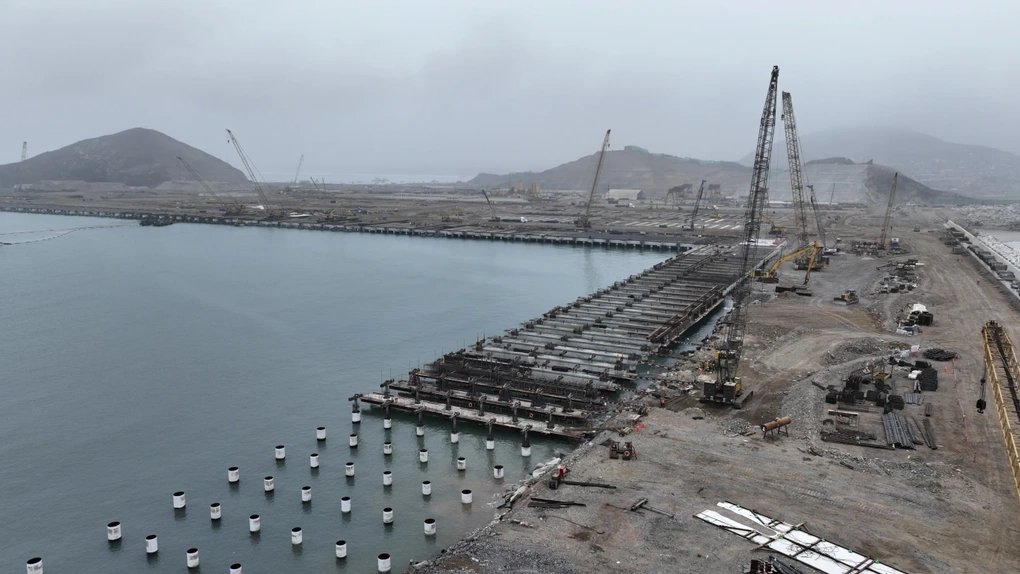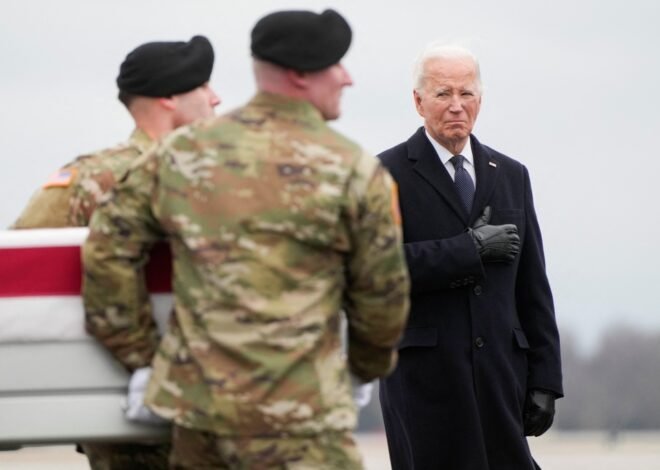
The US is concerned about China’s big `move` in its backyard
(Dan Tri) – China’s large-scale projects in Latin America have caused the US to publicly express concern that Beijing has increased its influence in Washington’s traditional backyard over the years.
Chancay port construction site in Peru (Photo: AP).
Newsweek reported that the US is expressing concern about China’s growing geopolitical influence in Latin America and has called on Peru to reconsider letting China participate in the country’s critical infrastructure.
According to the Financial Times, US officials have directly expressed concerns to the Peruvian government, highlighting specific risks associated with Chinese state-owned companies holding shares in the company that manages the country’s power grid.
`On geostrategic issues, the Peruvian government does not appear to be sufficiently focused on analyzing the interests and threats to the country,` a US official said.
In August, General Laura Richardson, head of the US Southern Command, admitted that Washington was at risk of being `surpassed` by China in Latin America, especially in the fields of telecommunications and critical infrastructure construction.
According to Ms. Richardson, although China currently has no bases in the Western Hemisphere, Beijing’s extensive infrastructure investment through the `One Belt, One Road` initiative (BRI) shows that
She warned that if this scenario occurs, it will significantly increase US security concerns.
The center of US concern is Peru’s under-construction port in Chancay, about 77km north of Lima.
This port is expected to be completed next year and is estimated to be able to receive the world’s largest cargo ships.
Skeptics worry that this project will not only enhance COSCO’s position, but could become a deep-water port that the Chinese navy can use to send naval ships to visit in the future.
In the US, Chinese company COSCO owns stakes in Miami, Houston, Long Beach, Los Angeles and Seattle.
Former President Donald Trump’s administration once punished two COSCO subsidiaries for supplying oil to Iran, but the restrictions were later lifted to ease pressure on the oil market.
COSCO also controls major ports in Greece, Spain and Türkiye.
Expert Christopher Hernandez-Roy at the CSIS Center (USA) said: `The US’s concerns are well-founded, because China’s infrastructure projects were previously designed for residential dual-use purposes.
`Letting a Chinese state-owned company operate a port can create vulnerabilities. In particular, port operators can collect intelligence on the types of ships and goods passing through,` Mr. Hernandez
`Given the projected size of the Chancay port and the fact that it is expected to connect Brazil, Chile, Colombia and Ecuador, it will have a huge impact on goods going in and out of much of South America,` he said.
China has repeatedly rejected concerns raised by the US regarding Beijing’s investment activities globally.
Peru and China have maintained high-level diplomatic relations for a decade.
Lima has also maintained good relations with the US.
`Peru is a reliable ally of the US. Peru’s China strategy may be primarily economic. Most likely, Peru is looking to boost trade with China to grow its economy and generate revenue.`
However, this does not necessarily mean that Peru will seek to separate itself from the US, its second largest trading partner,` Mr. Hernandez-Roy said.


